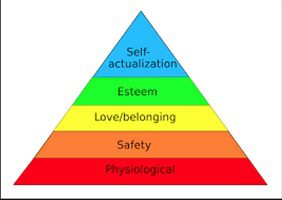Green Economy
The Green Economy is a concept adopted by the United Nations Environment Program (UNEP) in 2008.
According to the UN body, it means an economy that seeks to guarantee social equality and the well-being of humanity allied to the reduction of ecological and environmental problems.
The term replaces the concept of ecodevelopment used until then.
In a way, it converges with the definition of sustainability , which is nothing more than the concern to meet current needs without compromising the future of the next generations.
But the Green Economy goes a little deeper into this idea.
To achieve sustainable development in the economy as a whole, it was necessary to make it a little “greener”.
The set of actions taken in this direction was called the Green Economy.
Characteristics Of The Green Economy Or Entrepreneurship
The Green Economy has some basic characteristics, which should be part of any type of project that proposes to implement it.
Let’s go to them:
- Low emission of carbon and other greenhouse gases
- Reduction of other climate impact effects
- Efficiency in the use of natural resources
- Social inclusion
- Recycling and reuse of goods
- Use of clean and renewable energy
- Valuing the biodiversity present in ecosystems
- conscious consumption
- Adoption of more sustainable practices in production processes
- Universalization of basic sanitation
- Beware of water resources.
Benefits Of The Green Economy
According to the Organization for Economic Co-operation and Development (OECD) , the Green Economy can provide new sources of growth through:
- Increase in productivity: more efficient use of resources and reduction of waste and energy consumption
- New opportunities for innovation, with the creation of new markets for green technologies, goods and services
- Strengthening investor confidence, with greater predictability with regard to environmental issues
- More stability in a scenario with more balanced macroeconomic conditions and less volatility in prices and resources
- Prevention of bottlenecks caused by scarcity of resources or lack of quality, when there is a need for intensive infrastructure
- Prevention of imbalances in natural systems that cause abrupt, harmful and potentially irreversible effects.
Importance of Green Economy
The Green Economy has the important role of serving as a vector for governments, in all spheres, to prioritize social and environmental gains , whether through investment or legislation.
The State can, for example, impose serious sanctions on those companies that insist on not contributing to the defined sustainable principles.
A tougher fiscal policy, with taxes that weigh on the pockets of organizations that pollute, or exemptions and subsidies so that they can use cleaner energy sources are some possibilities.
It is also important that there is an inspection by the competent authorities, establishing clearer limits and norms for the industries.
All this can be achieved by following the precepts of the Green Economy.
Governments can develop public policies to make managers and the general population aware of the importance of sustainable use of natural resources.
As long as the social and environmental cost continues to be put in the background and companies continue to deforest and pollute , the account will never close.
The consequences are there and, if nothing changes, the report of the Intergovernmental Panel on Climate Change (IPCC) points to an unpromising future.
The Green Economy Around The World
Companies around the world are looking to adapt in search of a more sustainable development .
Especially because the success of those who follow this path of the Green Economy is evident.
According to a survey by the University of New York , 58% of organizations that adopt environmentally correct practices showed operational and financial gains .
In the United States, smaller enterprises that invest in social responsibility have grown 2.5 times more than their competitors, according to McKinsey & Company .
To end this global overview, let’s look at some interesting data from The Time Has Come: The KPMG Survey of Sustainability Reporting 2020 :
- Economic growth, climate change and responsible consumption are the most prioritized Green Economy goals by companies
- Protecting biodiversity is the least prioritized Green Economy goal by companies
- 80% of companies in the world have sustainability reports, highlighting the main companies in Japan and Mexico where this index reaches 100%
- 40% of global organizations report the risks that climate change can bring
- Most companies have clear goals to reduce their carbon footprint.
Green Economy And Environmental Conflicts
Like any topic that involves political-economic interests , the Green Economy is also a subject that generates controversy.
This is because one wing, made up of social movements and NGOs , argues that the correct name for this concept should be green capitalism or market environmentalism.
Discussions focus on the commodification of resources such as biodiversity, carbon and water as if they were commodities .
According to critics of the Green Economy, it is impossible to assign a monetary value to natural goods.
Therefore, environmental compensation actions , such as Environmental Reserve Quotas (CRA), represent a flaw in the model.
CRAs work as land titles, where each quota has 1 hectare of natural vegetation, and are available to be used as a bargaining chip, compensating for a devastated region, for example.
According to the opposite current, it is not possible to guarantee that the CRA would have the same value as the area to be replaced.




